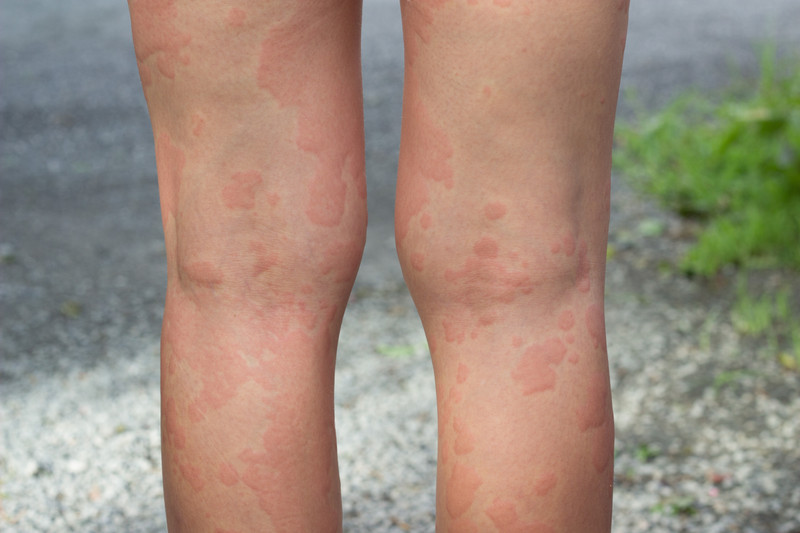Hives is a type of skin rash that can occur for a variety of reasons. Here is a look at hives, and a discussion of the best alternative remedies and nutrients that can help treat a hives outbreak.
What Is Hives?
Hives, scientifically called urticaria, is a type of skin rash which usually occurs as the result of an allergic reaction. This rash consists of itchy, pink, or reddish bumps that resemble bug bites, and can appear anywhere on the body. Hives can occur for a wide variety of reasons. Cases of hives can be acute or chronic, lasting anywhere from a few minutes or hours, or up to weeks, month or even years at a time.
Fortunately, hives is often mild enough that you don’t need to seek medical attention. However, the mild nature of hives doesn’t detract from the itching it can cause. Those experiencing hives for more than a few weeks should see a doctor. Furthermore, acute cases of hives might occur without your being able to identify what triggered it. Those with chronic hives, however, will surely want to consult their physician about triggers and treatment so that they can perhaps avoid hives going forward.
A wide variety of triggers exist for hives, including foods (e.g., peanuts, shellfish), medications (e.g., antibiotics), insect stings or bites, pollen, physical stimuli (e.g., cold, sun exposure), infections, and other sources.
Over-the-counter antihistamines are sometimes recommended for hives. However, many prefer alternative remedies, especially those who suffer from chronic hives.
Supplements Which Help Thwart Hives
Certain nutrients, vitamins, and other supplements have properties that can mitigate hives. This goes for acute cases of hives as well as chronic ones. Here are some of the more suitable products for preventing and/or remedying hives:
Betaine hydrochloride: Research shows that supplementing with betaine hydrochloride could help with cases of chronic hives. This is because of the relationship between hydrochloric acid, which is produced in the stomach, and food allergies that lead to hives. The stomachs of some people with chronic hives do not produce sufficient hydrochloric acid, leading to their allergies and hives symptoms. Taking betaine hydrochloride could pick up the slack in this deficiency and potentially alleviate hives in cases of food allergies.
A vitamin B complex supplement can also fortify the body and stomach against food allergies that would lead to hives. Taking the B vitamins alongside betaine hydrochloride is an ideal combination for those with chronic hives due to food allergies.
Witch hazel: A topical skin product made from the witch hazel plant can be used for a variety of minor skin conditions, including hives. Witch hazel has prominent antioxidant properties which protect your skin. During a hives outbreak, you can apply witch hazel to the rash to relieve itching and irritation.
Vitamin C: Supplementing with vitamin C could be helpful for so many reasons. As for hives, vitamin C is helpful because it works as a natural antihistamine in the body, which helps treat a hives outbreak. Vitamin C is also helpful because it’s necessary for healthy skin. Taking vitamin C could reduce the inflammation and irritation of hives.
Quercetin is a natural antioxidant and flavonoid. Taking quercetin can reduce allergic responses in the body, including hives. Quercetin supports the immune system in the face of allergens and other sensitivities, and can help the body to better respond to hives.
Hives is a rash that is often acute and mild, and sometimes chronic and mild, yet still bothersome. If you or a loved one experiences hives, then consider how all of these products could help. It’s recommended that you talk to your healthcare provider before using any supplement or topical product for the first time.

